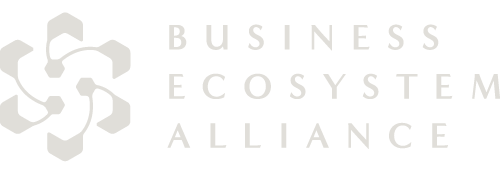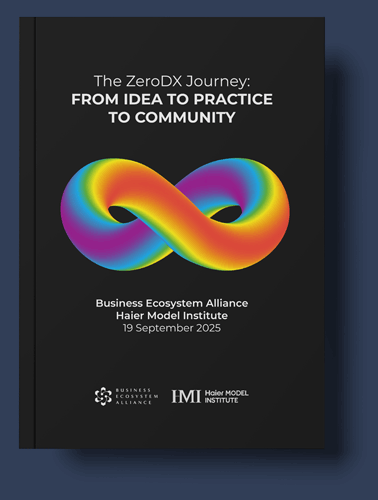

Building Brave Spaces: The Bold2Move Journey
Bold2Move was a winner in the Emergent Excellence category of the 2025 ZeroDX Awards announced in Beijing on 19 September 2025.
When Jochen Göser and Stephanie Dahl-Wissmann met while leading the agile transformation at Bosch Power Tools, they discovered a shared conviction: organizations could be both high-performing and deeply human if freed from rigid hierarchies. That partnership eventually grew into a consultancy in Stuttgart devoted to guiding others through similar transformations.
Their mission is not delivered as a slogan on a wall but shaped with the people they work alongside. Teams are invited to design their own North Star, creating alignment through shared meaning rather than imposed statements. This reflects a spirit of transformation where purpose is discovered in the interaction between people and the value they create for users.
Inside the firm itself, structure reflects this philosophy. Authority is distributed according to expertise rather than position, and outcomes are owned collectively. Project teams form fluidly, adapting to each client’s needs. The founders call this “Peopleship,” an idea that organizational design should grow from human relationships rather than reporting lines. It mirrors the idea of micro-enterprises, where small, accountable units work with autonomy and trust at their core.
Openness plays a central role. Frameworks and tools are shared without restriction, an act of radical transparency that ensures information flows freely. Mistakes are acknowledged, and learning is seen as a collective journey. In this way, transformation becomes not a product to be delivered but an ongoing process of mutual growth.
Connections beyond the company strengthen this culture of openness. Regular exchanges with academics and practitioners, as well as participation in global networks of progressive organizations, create a platform for learning that transcends borders. It is a living ecosystem where insights circulate freely and innovations are tested across contexts rather than contained in silos.
The origins of this path lie in frustration. Both founders had seen how bureaucratic structures suffocated initiative and drove away talent. Their experience at Bosch showed that even a traditional engineering company could evolve into an agile, self-organizing system. That lesson became a compass: transformation was possible wherever people were given the space to act like their own CEOs. What followed was a practice focused on turning moments of crisis into opportunities for decentralized collaboration and bold leadership.
In one engagement, they accompanied a client team through the turbulent phases of development. Instead of prescribing solutions, they first inspired the group with a shared vision, then enabled them with new processes, and finally coached them through the conflicts that inevitably arose. This sequence reflected their belief that transformation must align people with purpose, equip them with autonomy, and support them as they experiment and learn.
Not every opportunity turns into a collaboration. The two founders have learned from experience that lasting change does not come from surface-level restructuring or quick-fix solutions. They choose to work only where transformation can reach the deeper layers of an organization: how people communicate, how entrepreneurship is encouraged, how culture is nurtured, how strategy is owned, and how collaboration is practiced. By working at this depth, their projects move beyond theory and naturally resonate with principles of accountability, user value, and cooperation across boundaries.
From this foundation, what takes shape is more than a consultancy. It is a living example of the very philosophy it spreads: adaptive in structure, transparent in practice, and human in spirit. The brave spaces created in their work demonstrate that when people are trusted with autonomy and ownership, innovation ceases to be an aspiration and becomes a daily reality. Their journey confirms that value is created most powerfully when individuals act as leaders of their own work, connected directly to the users they serve.
Originally created by Corporate Rebels


